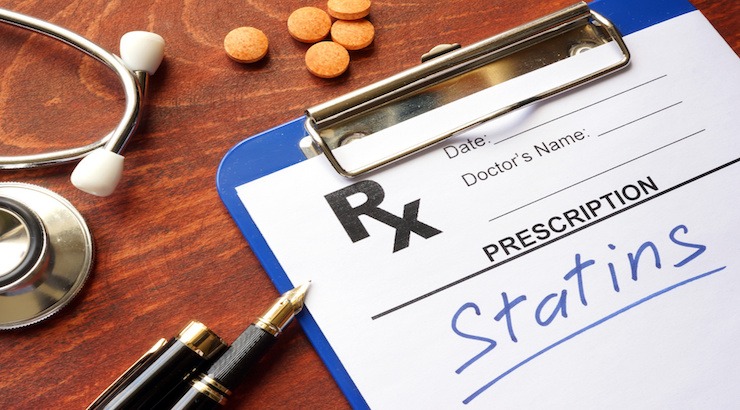I have a little quiz for you. Bear with me, I know it will seem a bit odd at first…but I promise, it contains a valuable lesson about taking care of your health.
Let’s say a fly is buzzing around in your kitchen. What do you do?
a) Open the door and try to shoo it out.
b) Try to hit it with a flyswatter.
c) Spray it with toxic chemicals.
d) Blast it with a flamethrower.
If you answered “c” or “d” you’ll probably be successful in getting rid of the fly…but I’m not sure I’d want to eat in your kitchen afterward.
I’m sure most people would agree that using a flamethrower to kill a fly is an example of massive overkill. But in some ways, that’s what many people are doing when they use statin drugs as a first-line treatment to lower cholesterol.
These drugs are very effective at what they are designed to do…which is to reduce LDL cholesterol. And yes, elevated LDL is a significant risk factor for heart disease. But these popular medications also come with some fairly severe potential side effects, which can include liver failure, impaired memory, cataracts, and rhabdomyolysis, a very serious disease where the muscle fibers die, which can lead to life-threatening kidney failure.
A New Study Highlights Another Risk of Statins
You can now add another serious side effect to that list. According to a study, which was just published in the JAMA Internal Medicine, the use of statins can also lead to idiopathic inflammatory myositis, an autoimmune condition that leads to chronic inflammation in the muscles used for movement.
This is new and upsetting news. Statins are very widely prescribed, and brand names such as Lipitor, Zocor, Crestor are used by millions of people across the globe. Although the risks of adverse effects of statins are well documented, many mainstream physicians believe they are generally safer than they really are. There’s evidence that doctors are less aware then they should be (and may even be discounting patient reports) of side effects, which is very discouraging.
Despite my reservations about statins as a first-line treatment, I agree that they have their place in medicine. They are undoubtedly effective in lowering cholesterol and are sometimes life-saving for high-risk patients who cannot get their lipids under control through diet, exercise, and other lifestyle choices.
But I believe the risks are underappreciated (particularly by the public) and that physicians are not doing their patients any favors by prescribing them as a first resort. In my view (and I am hardly the only doctor to question the prevailing dogma) statins should only be used when diet, exercise, and lifestyle changes have failed to lower cholesterol.
The Good News
I’d like to finish today on a high note. A combination of diet and exercise can improve cholesterol numbers and decrease cardiovascular risk dramatically. It gets better. While statin drugs only address one cardiovascular disease risk factor, the right diet and lifestyle can improve virtually all of the modifiable risk factors we know of. Staying active and eating a largely plant-based diet will help you lose weight, lower blood pressure, raise good cholesterol, improve blood sugar control, and lower bad cholesterol and triglyceride levels. Best of all, the typical side effects of a good diet and regular exercise are improved mood, increased vitality, and better cardiovascular health.
I believe Dr. Robert S. Greenfield, the medical director of noninvasive cardiology and cardiac rehabilitation at Memorialcare Health System, is right on target when he says, “Patients who are significantly overweight, or eating too much saturated and trans fats, can lower their cholesterol significantly by eating a Mediterranean diet with caloric restriction and exercise.”
So, it’s important to realize that there are safer and less self-defeating ways of improving your heart health. Statins can help you get your cholesterol levels down, but I’m convinced these medications are like the proverbial flamethrower and should be used only if opening the door or using the flyswatter didn’t work.
Take good care,
Dr. Josh









